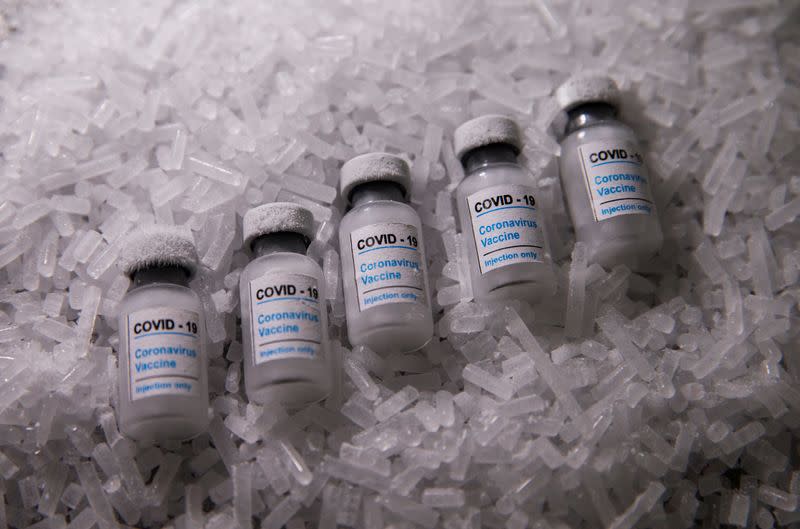MOSCOW (Reuters) – A COVID-19 vaccine candidate known as EpiVacCorona, Russia’s second to be registered, has proven to be “100% effective” in initial tests, Russian consumer health surveillance agency Rospotrebnadzor told local media.
The data, based on Phase I and II studies, was released before the start of a larger Phase III study, which would normally involve thousands of participants and a placebo group as a comparison.
“The vaccine’s effectiveness is made up of its immunological and preventive efficacy,” reported the TASS news agency, citing Rospotrebnadzor.
“According to the results of the first and second phases of clinical trials, the immunological efficacy of the EpiVacCorona vaccine is 100%.”
Phase I and II studies tested the safety, side effects and immunogenicity of the potential vaccine in 100 people aged 18-60, according to state trial records.
Normally, early-stage vaccine tests on humans are based on blood readings that show an immune response in participants who have not been exposed to the virus, while the results of larger end-stage tests are based on actual infections suffered by participants in their normal lives.
Russia began testing EpiVacCorona, which is being developed by the Vector Institute of Siberia, in November.
Earlier that month, Moscow said its other approved vaccine, Sputnik V, was 92% effective in protecting people against COVID-19 based on provisional results.
Russia said it could inoculate 60% of its population against COVID-19 this year and, although the Sputnik V vaccine is now available in Moscow, the nationwide rollout has been slow.
Russian President Vladimir Putin has ordered mass vaccinations to begin this week.
EpiVacCorona will be used for mass vaccinations starting in March, Deputy Prime Minister Tatiana Golikova told the Interfax news agency.
Russia reported 3,612,800 cases of coronavirus, the fourth largest total in the world. Its death toll from the virus is 66,623.
(Reporting by Maria Kiselyova and Polina Ivanova; writing by Alexander Marrow; editing by Kate Kelland, Jason Neely and David Evans)
